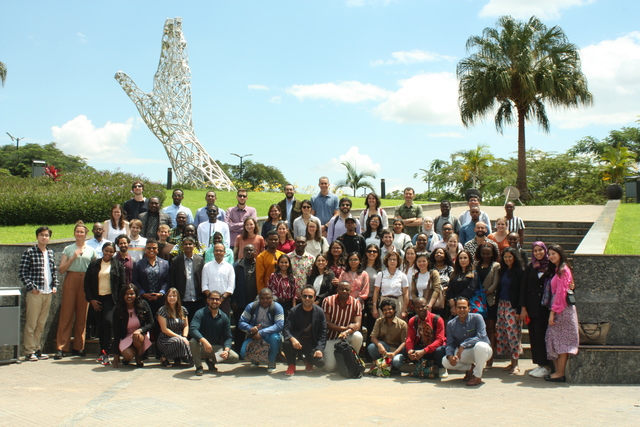Two early career researchers Petronille Dusingizimana and Rachel Isphording reflect on their time at the WCRP Open Science Conference 2023 and share their key takeaways from the experience.
Petronille Dusingizimana
The WCRP 2023 Open Science Conference (OSC) is a turning point, emphasizing the urgent call for immediate climate action. In the realm of climate change where boundaries dissolve, a collaborative and transdisciplinary approach is imperative. As an early/mid-career researcher (EMCR) specializing in sustainable agro-food systems, the conference served as a dynamic platform harmonizing the expertise of junior and senior researchers to craft innovative and sustainable solutions.
The collective commitment witnessed at the conference reflected a rich diversity of perspectives converging toward a sustainable future, with EMCRs as the driving force behind innovation in climate science. The OSC provided a unique space for EMCRs to contribute insights and engage with established researchers and policymakers, fostering a shared sense of responsibility in shaping the trajectory of climate research. This collaborative spirit extended to discussions on the intersection of climate science and sustainable agriculture; a theme echoed in the WCRP conference and COP28.
The WCRP conference can be viewed as a blueprint for COP28, evident in the aligned calls for transformative actions, a shift from fossil fuel energy, and the pursuit of climate justice. This alignment underscores the potency of collaboration and trans disciplinarity in advancing climate research.
Looking forward, the future of climate science hinges on working together, inclusivity, and actionable knowledge. EMCRs are pivotal in propelling innovation and transformative actions, emphasizing multidisciplinary research, effective policymaker engagement, and translating scientific knowledge into actionable climate information. The Kigali Declaration is a guiding compass steering us towards a sustainable future.
The optimism ignited by the WCRP 2023 OSC resonates in the face of climate challenges. EMCRs, with their diverse perspectives and unwavering dedication, are poised to shape the evolving landscape of climate science significantly. As we collectively embark on the journey towards sustainability, the Kigali Declaration serves as a powerful catalyst for positive change, offering hope and direction in our pursuit of a resilient and sustainable future.
Rachael Isphording
Attending the WCRP Open Science Conference (OSC) in Kigali, Rwanda, was a profoundly rewarding experience, contributing significantly to my personal and professional growth as an Early Career Researcher (ECR) in climate science. The incredible diversity of the attendees spanning multiple disciplines, career stages, and global regions—most notably from the Global South—provided an unparalleled opportunity for networking and thought-provoking discussions. Conversations were inspiring and insightful, allowing me to gain fresh, transformative perspectives.
The OSC not only broadened my technical knowledge but also heightened my awareness of stark inequities between the global North and South. I vividly recall round-table discussions at the Early and Mid-Career Researchers (EMCR) events and Townhalls where I heard firsthand accounts from colleagues that underscored the impacts of climate change on their communities and exposed resource disparities within the global climate science community. Colleagues from Barbados, Jamaica, South Africa, and Brazil shared their struggles of computational resource limitations, barriers to accessing and publishing in renowned scientific journals, inaccessible international career development opportunities, and biases and discrimination.
Reflecting on the OSC, the ideas discussed, and the awareness gained from such a beautifully diverse cohort will shape the priorities for the global climate science community in the coming decades. I am truly grateful to have contributed to these discussions. Aligned with the WCRP’s ethos, I am committed to the collective pursuit of interdisciplinary and inclusive knowledge that will inform urgent action to create a more sustainable and equitable future.


